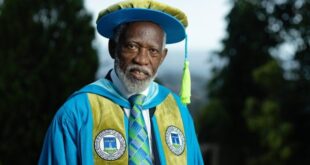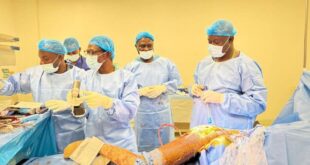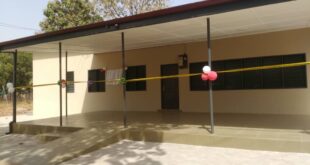When I first read about Government’s plans to adopt the double intake system for the Senior High School, I smiled in remembrance of the writer of Ecclesiastes 1:9 “ whatever has happened will happen again; there is nothing new under the sun.” As usual, I expected the announcement to excite some very lifeless debates in which the verdicts of Psalm 115:5-7 or Psalm 135: 16-17 makes us worse than the idols they describe. For the level of partisanship in our discourses always shut off the sensory facilities that should make us see and recognize things as they are and admit truth for truth and a lie for a lie. Because of this, we tend to take every issue as an entirely new and out of the blues issue that has no history or contemporary context. This ahistorical and a-contextual approach is very convenient because it then allows us to proffer our own very parochial views as the ultimate gospel truth that everyone must listen to and believe. It allows us then to create the space where anyone with access to the media, rented or otherwise, becomes an opinion leader, a thought-leader, the go-to person for an opinion for everything from archaeology to zoology, when they are even clearly out of their elements on such issues. And because they can speak without history or context as their guide, they can be experts in anything they want. A sad reflection of the level of intellectual mediocrity we have and are allowing ourselves to be reduced to in our national discourses. In the matter of the double intake of students for the SHS level, however, let me hasten to say, for the sake of those who don’t know but must speak, that there is a history and a context and that the proposal is neither new nor impossible to implement.
The History and the Context: The idea is not new. Professor Okonjo first proposed the system in the 1980s for expanding access to education at the university level. He later cascaded the proposal down to the level of the polytechnics when he called for the “rearrangement of the academic patterns to make it possible for two intakes a year, with each batch completing its work for the year within 24 weeks” (Daily Graphic, “Upgrade Polytechnics – Okonjo”, Monday, 17 March, 1980). Contextually, the double intake proposal emerged because Professor Okonjo had observed that even though the academic year at the time comprised 32 weeks, the actual number of weeks spent on education was 27, when the vacation periods are factored in. Hence, the existing educational facilities were effectively used for only 27 weeks in a year. This meant that of the 52 weeks in a calendar year, the capacities of existing institutional infrastructure lay idle for 25 weeks (48.07%) of the time available per calendar year. His proposal therefore aimed to maximize efficiency in the use of existing capacities (no need for new buildings; 48 weeks of occupancy of the facilities instead of 27) while increasing access to education to a larger number of students (double the intake) within the same calendar year.
The Politics and Economics: It is noteworthy that Professor Okonjo first injected these ideas into the Ghanaian educational policy discourse when he was serving as Education Advisor to the PNDC Government in the 1980s. He had moved from being the Director of the Regional Institute of Population Studies (RIPS) at Legon to this position. Interestingly, the idea of two years of national service and that the upgrading of polytechnics to university levels were all proposed by the same Professor Okonjo about the same time as he proposed the double intake option for universities. The PNDC government immediately implemented the two-year national service scheme, and the Atta-Mills/Mahama NDC government championed the conversion of the polytechnics into universities. I believe the idea of fast-tracking the conversion of the middle school system to the Junior Secondary Schools (JSS) was part of the reforms Okonjo recommended, and one which was implemented. Admittedly, the JSS concept was not new at the time; the Acheampong government had introduced it on experimental basis before the PNDC era.
In respect of the double intake at the universities, the PNDC may not have taken up the double intake initiative plausibly for two reasons. First, there was a resistance from the universities, particularly the students, who objected to the idea of compromising their comforts. I was a student at the time and was part of the JCR and SCR debates. The jargon Okonjo emerged as a pejorative reference to the undue intake of a double portion of anything, especially when one managed to stealthily obtain two plates of food, instead the one plate one was entitled to. Secondly, implementation of the proposal at the time would have meant that the PNDC government would have had to come up with additional resources to accommodate the remuneration for the additional numbers lecturers and/or hours of lectures that would have been needed for the second batch of students. Since the PNDC was under the grip of the IMF’s structural adjustment program at the time, it probably had little to no room to maneuver for the extra resources to accommodate such additional human resource costs. Be it as it may, the idea was abandoned.
Thinking Through: The foregoing historical and contextual brief should indicate that there has been some high quality thinking through on the double intake concept, even if its application at the time was not intended for the pre-tertiary levels of Ghana’s educational system. When I read the proposal from the current ministry of Education in Ghana, I was personally taken aback by the depth of statistical analysis that informed the choices and decisions made. It may have been happening on my blind side in respect of other Ministries, but the paper I saw was the first time I have personally seen a Government of Ghana policy paper seemed in such concrete statistics – no “ifs”, no “abouts”, no “many” or “most” or such other imprecise language that allow policy makes create the kinds of escape routes that make them unaccountable for their promises and actions. I felt that I could hold someone accountable to those figures. And if someone was willing to stick out a neck for such precision, they must have thought through what they were putting out. I would certainly have to see more concrete thinking seeped in such statistical analysis convince me that what Professor Okonjo did before and what the current Ministry of Education have added to the analysis all lack the analytical rigor to make the porous, shabby, shambolic, or anything else but a realistic basis for the decisions that have been made to go for the double intake system. I’d gladly join the protest when I have seen a policy alternative that pales out what we have now.
The Stones that the Builders Rejected: And while we await the alternate policy proposals, may we remind ourselves that the very ideas of Professor Okonjo that the universities rejected in the 1980s are now in full swing implementation mode in our universities, even if we don’t call them by the double intake name. Nearly all the public universities in Ghana are in deadly competition to run in-out, and in-out-out systems, which literally means when you are admitted into the university you get to use the full facilities of the university for only part of the time that you are there. For the rest, you have to literally commute from somewhere else for your lectures. Add to this the proliferation and acute competition between various public universities of the country in the establishment of distant learning programs, some of which literally run the double intake schedule, is proof that what Professor Okonjo proposed has come into full operation, even if we dillydallied or procrastinated for a full generation – 30 years. Would we have been better off and better prepared for it now, had we bitten the bullet 30 years ago or soon thereafter?
Beyond the Analysis that Cause Paralysis: It would seem that Ghanaians, or at least those who lay claim to some intellectual acumen, believe that perfectionism is the only standard by which we must judge our policy options, even when those we look up to as standard bearers hold no notion of perfect options. We are quick to point to “best systems or policies” in other lands; choosing at the same time to forget where those people came from, what challenges they had, and the struggles they are still undergoing to improve on what we consider perfect. We choose to forget that Rome was not built in one day, and no human system has ever been built to perfection ab initio. It takes courage to get started, stamina to muddle along when things are not going as they should, and patience to continuously work on the imperfections, straightening out the kinks as we move along. Instead, we must shoot down anything that is not from us, to prove that we are more intelligent that the other. Fabricandum fit faber – to wit, it is by building that one learns how to build, is a concept alien to us. Appreciate enquiry is alien to us, and constructive criticism is a mark of intellectual weakness.
This penchant for and pretense of perfectionism has bred genre of negative intellectualism in which we equate intellectual brilliance to how negative we can be in evaluating anything that comes our way, even if that means denying the obvious and picking on nonexistent pickles on otherwise spotless things. This negative intellectualism is the true bane of Ghana’s, and by some extension, Africa’s development. For starters, it denies that we have the capacity to think creatively not only to initiate change, but to dig outside out of any situation that the change might lead us into, just like other races have done. In the process, it discourages creativity, innovativeness, risk taking, and in sum, our collective ability to create home-grown solutions to our problem. Instead, it makes us dependent on the ideas of others for whatever we do; perpetuating thereby the intellectual slavery that ensures that we remain followers of others, and never leaders in any sphere of thought and action in the world. We cannot walk at par with, much less lead others because we have no tried and tested solutions of our own to offer. It is this kind of thinking that has also made us to jettison our indigenous knowledge systems in agriculture, education, health, food and nutrition, etc. to become dependent on what others have created and will continue to sell to us. It is this kind of negative and destructive intellectualism that perpetuates the false definition of development as something that comes from the outside, something that some external entity – the international community, donors, experts, and within our country, including government, must give or do to us; instead of development being the creativity that comes from within, drawing on our spiritual, intellectual, and social systems and resources, to transform the gifts of nature that we have into new and better products and services that enhance our lives and livelihoods.
And for a long as our media uncritically rush to print and distribute opinion that spews out of the mouths of such negative intellectuals, we perpetuate the sense of hopeless and helplessness that can only serve the interests of the paymasters of such self-seeking negative intellectuals. For, we must ask who is paying such people to keep them talking the way they do, and why would anyone pay them for habitually killing the creativity, innovation, and self-confidence of their own? What is their true agenda? That merits some enquiry, I believe. Until we find out, progress can only be made if the habitual complainants are recognized for what they are and ignored.
Until then, Viva Obi Professor Chukwuka Okonjo. At 90, you have lived to see the resurrection of your idea in full bloom. Your forward looking ideas have survived despite all that the feeble-minded have done and will continue to do to kill it.
By Hippolyt A S Pul, PhD
0244311098
 Savannah News Online Reporting Only What Matters Most
Savannah News Online Reporting Only What Matters Most



